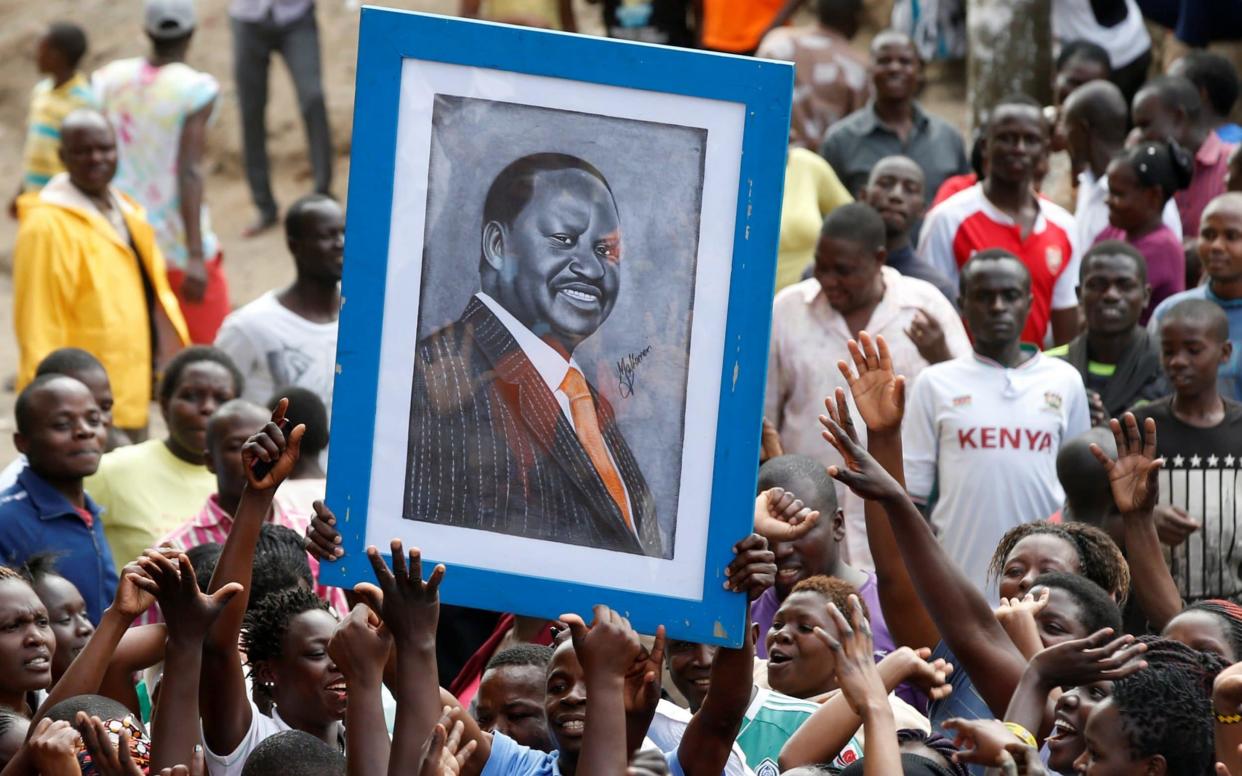Kenya thrown into crisis as opposition leader withdraws from election re-run

Kenya’s opposition leader on Tuesday withdrew from the rerun of a presidential election voided by judges in August, tipping an already turbulent country into constitutional crisis.
Raila Odinga said he would not participate in the new vote, to be held on October 26th, after accusing the electoral commission and the ruling party of Uhuru Kenyatta, the president, of plotting to cheat him of victory for a second time.
Raising fears of renewed unrest after police killed more than 30 opposition protesters in the aftermath of the August vote, Mr Odinga’s coalition called his supporters back onto the streets with demonstrations under the slogan “no reforms, no elections” to begin from Wednesday.
Mr Odinga said that ruling party loyalists in the commission had refused to make any changes after the supreme court cited widespread “illegalities and irregularities” in its historic invalidation of President Kenyatta’s re-election in August.
“All the indications are that the election scheduled for 26 October will be worse than the previous one,” Mr Odinga, who has run for president four times in the past 20 years, told reporters in Nairobi. “It is now clear that the same criminal enterprise that perpetuated the fraud in the August election is firmly in charge of the commission.”
By withdrawing from the vote, Mr Odinga said that the electoral commission was legally obliged to postpone the election for 90 days, giving it time to enact the changes he has demanded to ensure a free and fair vote.
But it is far from clear whether the opposition’s interpretation of the law is correct.
According to Kenya’s constitution, the re-run of the election must be held within 60 days of the supreme court’s ruling, a deadline that expires on November 1.
President Kenyatta insisted that the election must go ahead with himself as the sole candidate, prompting celebrations from ruling party supporters.
But victory in a one-man election would almost certainly see another challenge brought before the supreme court and its chief justice, David Maraga, whose duties include swearing in a new president.
Perhaps unwisely, the president, furious that his victory had been nullified, has accused Mr Maraga of presiding over a court of “crooks” in the pay of “whites and other trash”.
Kenya has grown increasingly politically and ethnically polarised since the supreme court’s decision, with the ruling party seeking to use its majority in parliament to force through legislation that would make it harder for judges to overturn Mr Kenyatta’s victory should he win again.
Western states have accused both the president and his rival of intransigence, condemning Mr Kenyatta for baiting the supreme court and Mr Odinga for making unreasonable demands to remove virtually all the senior leadership of the electoral commission.
The standoff between the two men has led to opposition clashes with police, who have often responded brutally, chasing and beating university students in their halls of residence and teargassing a nursery school in western Kenya. Politicians have also been accused of stirring ethnic tensions.
The ruling party MP for the president’s constituency was arrested last month for vowing to “hunt down” those who voted for the opposition and “circumcise” them — an ethnic slur aimed at Mr Raila’s Luo tribe, which, unlike the president’s Kikuyu, does not practice male circumcision.
An opposition MP, Paul Ongili, was similarly charged with hate speech after calling the president a “son of a dog”.
Demonstrating the increasingly fraught political atmosphere in the country, a ruling party MP chased Mr Ongili through the grounds of parliament on Tuesday, throwing punches and shouting: “We will teach you a lesson. You must respect the president.”

